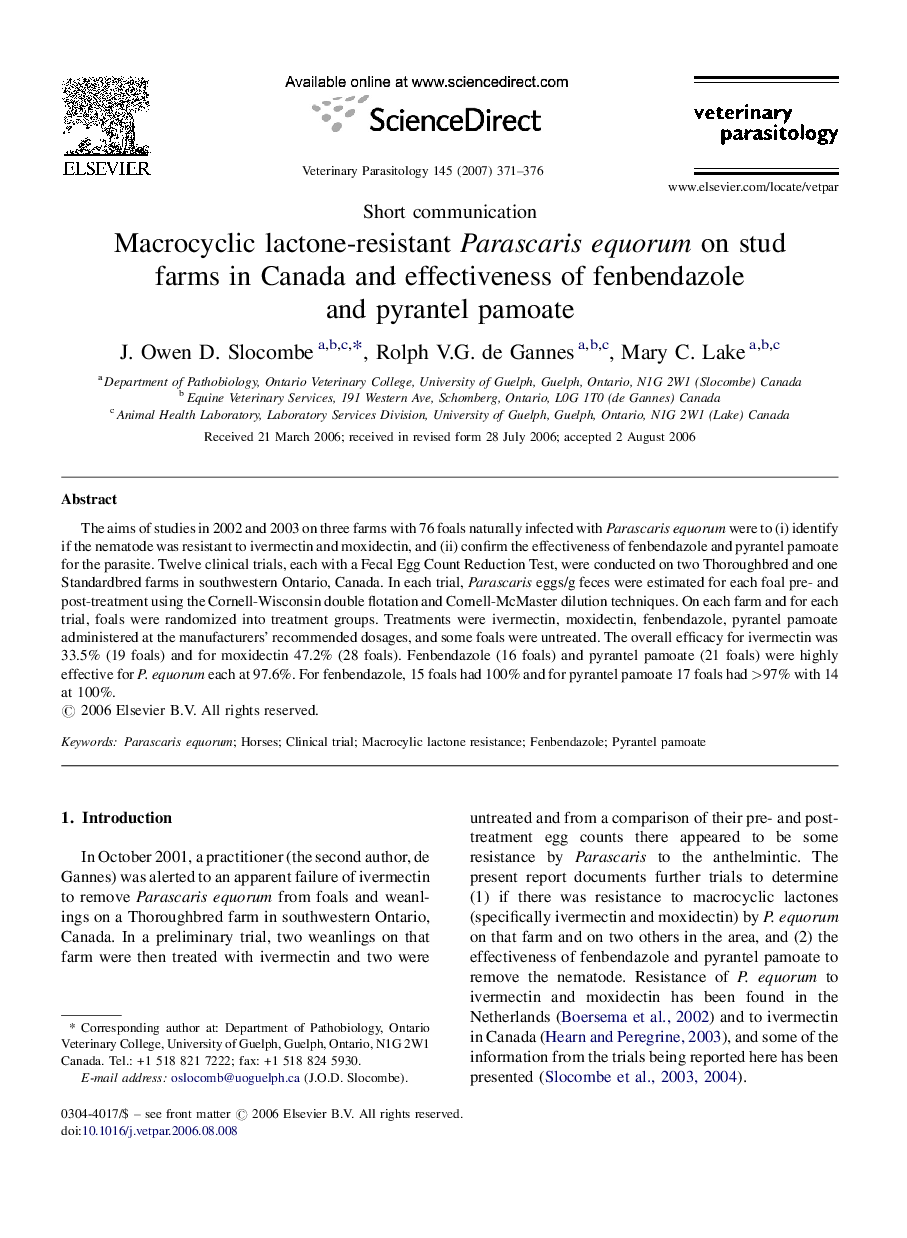| Article ID | Journal | Published Year | Pages | File Type |
|---|---|---|---|---|
| 2472002 | Veterinary Parasitology | 2007 | 6 Pages |
The aims of studies in 2002 and 2003 on three farms with 76 foals naturally infected with Parascaris equorum were to (i) identify if the nematode was resistant to ivermectin and moxidectin, and (ii) confirm the effectiveness of fenbendazole and pyrantel pamoate for the parasite. Twelve clinical trials, each with a Fecal Egg Count Reduction Test, were conducted on two Thoroughbred and one Standardbred farms in southwestern Ontario, Canada. In each trial, Parascaris eggs/g feces were estimated for each foal pre- and post-treatment using the Cornell-Wisconsin double flotation and Cornell-McMaster dilution techniques. On each farm and for each trial, foals were randomized into treatment groups. Treatments were ivermectin, moxidectin, fenbendazole, pyrantel pamoate administered at the manufacturers’ recommended dosages, and some foals were untreated. The overall efficacy for ivermectin was 33.5% (19 foals) and for moxidectin 47.2% (28 foals). Fenbendazole (16 foals) and pyrantel pamoate (21 foals) were highly effective for P. equorum each at 97.6%. For fenbendazole, 15 foals had 100% and for pyrantel pamoate 17 foals had >97% with 14 at 100%.
